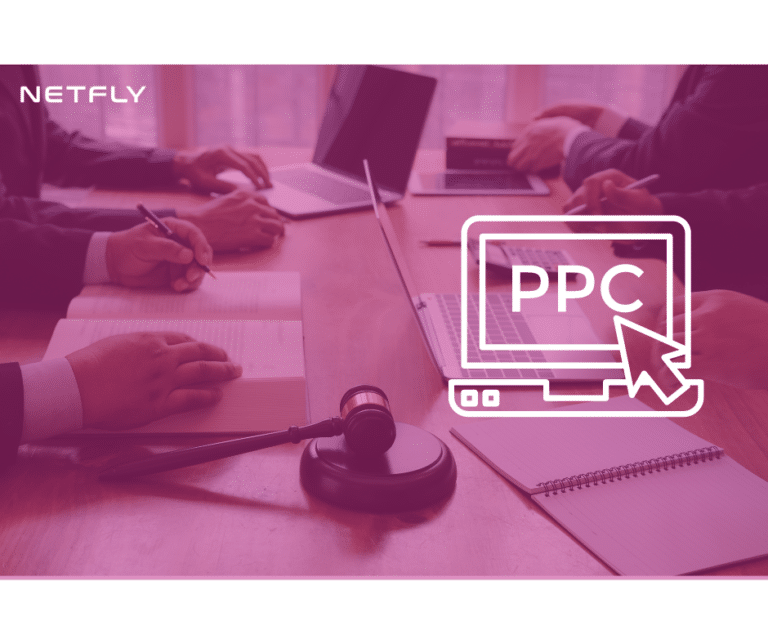How do you know what to invest in and what to ignore?
In contrast to marketing for other companies, the objectives and practical aspects of marketing for law firms could be more evident and straightforward. For law firm marketing, it’s important to be aware of your target audience’s demands and use both paid and organic methods to promote your legal services. Marketing your law firm is crucial to draw customers and to spread the word about your practice’s services. Several factors are to consider, including Google, Facebook, PPC, SEO, and internet evaluations. Many consultants would assert that their approach is the best.
You want to attract potential clients to your legal practice by promoting a product or service. It involves educating the general public and, more specifically, the group that makes up your clientele.
Most lawyers need to create a powerful law firm marketing plan that enables them to communicate with and influence their target audience. As a result, they wind up relying on word-of-mouth and the courtroom for new customers, which is not a reliable long-term approach.
SEO is an Essential Tool in the Digital Age
A law firm in 2023, the majority of law firms’ digital marketing strategies will use SEO heavily. Your law firm is accessible online, while potential clients look for your services in practice, known as SEO. Let’s take a closer look at key SEO topics that anyone concerned with attorney marketing should consider.
Being a topical authority in your field of expertise should be your major objective while creating content. Increasing your website’s exposure on search engines may attract 58% of legal customers seeking legal counsel. This involves creating, constructing, optimizing the website structure, and generating high-quality content.
You’ve probably seen the competition there if you’ve ever searched for anything like “personal injury lawyer” on Google. Your local search results can be dominated by pay-per-click ads, and “Google-filtered” results from rival local businesses. When optimizing legal websites, law firms should use some critical SEO techniques.
You may produce in-depth, unique content that responds to the kinds of queries that your target audience is thinking about. It could take some time to acquire clients, but you don’t need an army of digital marketers or endless resources. It can result in a fantastic return on investment and is far less expensive than purchasing search advertisements.
Google Analytics
The main goal of Google Analytics is to assist people in better comprehending the consumer journey on their websites. Understanding the origin of a legal firm’s website visitors is essential. Since people are placed geographically, you want to know what they are doing on your website. Google Analytics enables you to track, monitor, and analyses data from your website.
Additionally, you’ll need to know what search phrases they entered to discover the website and which website directed them there. Many people don’t think of Google Analytics as an SEO tool straight away. Still, with the correct expertise, you can acquire these insights by setting up your website’s Google Search Console (GSC) and Google Analytics.
A few tips for using Google Analytics and Search Console for a law firm
To use Search Console, you must sign in with a Google account. All Google products, including Gmail, AdWords, and Google Analytics, accept the same login credentials. Conduct a fundamental SEO assessment of your website. No matter how well-optimized it appears, you must first identify and correct any technical issues.
To locate pages that need optimization, use Google Search Console. A powerful tool like Google Search Console may help increase organic traffic to a website and keep it in good condition. Low CTR indicates prospective customers need to be more interested in visiting your link.
Any SEO audit tool that you or a potential marketer uses won’t ever match the accuracy of your Google Search Console data. Businesses may form relationships with their audience by producing quality content that adds value for readers. Ensure you’re targeting the right audience by conducting a simple keyword search to determine your largest opportunities.
My Google account in local SEO
One step is all it takes to successfully navigate local SEO for attorneys. In this situation, you must register. That’s it! Create a free Google My Business account. Your Google My Business (GMB) page is where you should focus your efforts if you want people to find your legal business. You may manage the listing by registering your account. If you have a business, you most likely already have a listing. GMB is user-friendly for a dashboard, but layer-specific special situations and exclusions abound.
Using the right keywords is important
Are you aware that 80% of consumers research potential businesses online before going there?
Using relevant keywords to attract customers is essential when optimizing for only one keyword. Additionally, you’ll need to research keywords that cater to the target demographics.
Picking one keyword and concentrating on it. Every page on their website is focused solely on one keyword. It’s a terrible error. It would help if you incorporated a few core and secondary keywords into your text after you’ve chosen them. But don’t go overboard.
Structural data and schema markup
Have you ever observed that certain search results on Google display differently from others when you search?
Another strategy to increase your website’s chances to rank organically, particularly with rich snippets, is to include structured data (using the Schema markup language). Consequently, Google can present consumers with better, more informative results. 10,000 to 50,000 domains (or 10% of legal firms) use some attorney-related schema, according to schema.org. The legal practice employs a sitemap schema to provide clickable connections to several crucial websites. On the website of a legal firm, elements can be emphasized with schema. The snippet can be created by a legal service, organization, local business, location web admin, or freelance contractor and added to the Head and Body portions of your website’s pages to make it easier for a novice schema user to operate.










